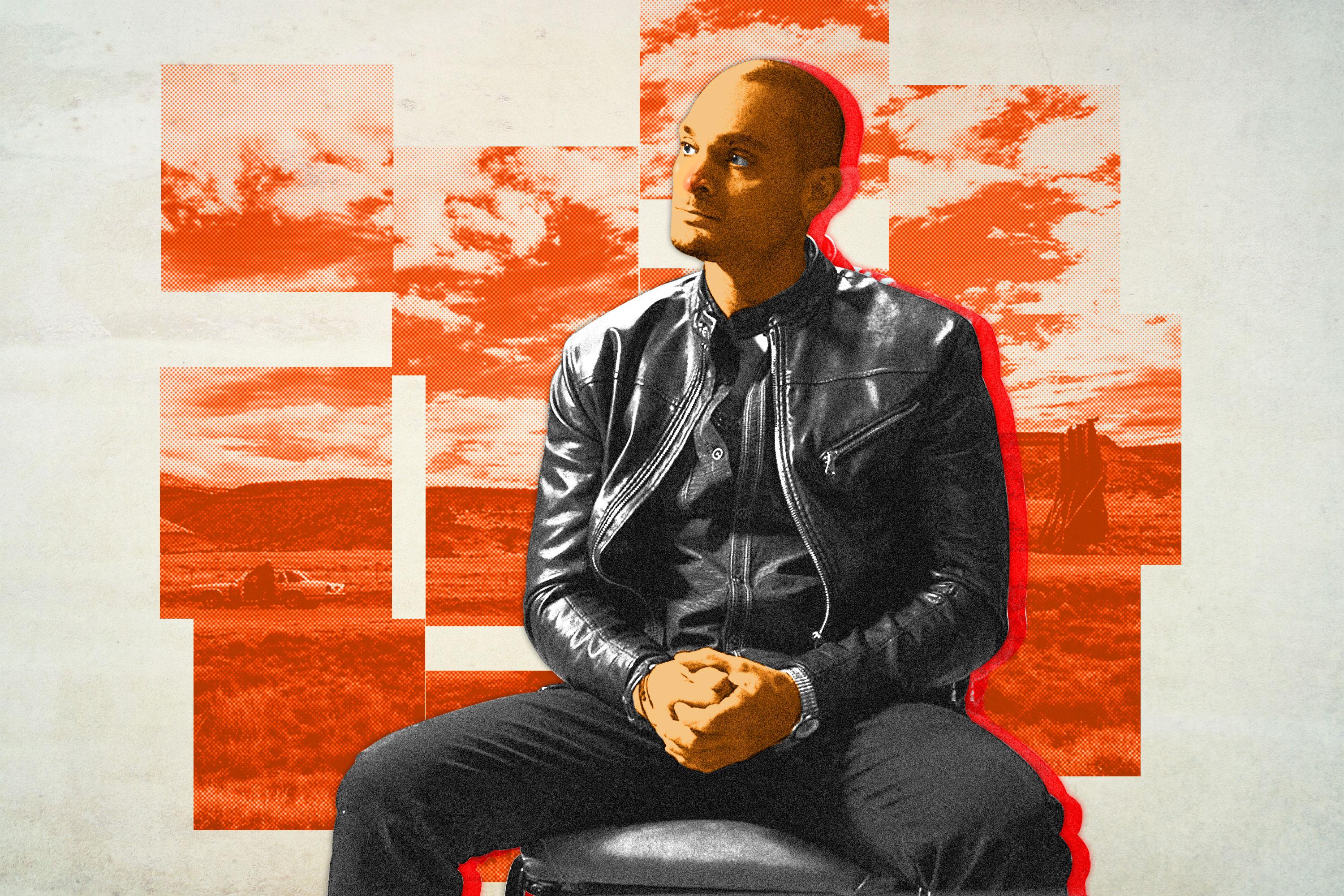Character Study: Nacho, the Ruminative Anchor of ‘Better Call Saul’
The future of Ignacio Varga is one of only a few yet to be determined on the show, and within that uncertainty lies hard truths about responsibility, morality, and mortality

One of the small miracles of Better Call Saul—the rare prequel that lives up to the highs of its award-winning predecessor—is its ability to consistently remain compelling despite most of its characters’ fates already being established. As Jimmy McGill (a.k.a. Saul Goodman) smarms his way through courtrooms or Mike Ehrmantraut and Gus Fring operate their criminal enterprise in Albuquerque through dimly lit warehouses and the never-ending expanse of the Chihuahuan Desert, Breaking Bad viewers are well aware these men will outlast the obstacles presented to them in Saul. The thrill is connecting the pieces of how Jimmy, Mike, and Gus became their formidable future selves—and the best way to understand those journeys is through Better Call Saul’s non–Breaking Bad characters. They’re frequently catalysts for the evolution of the main characters, though their stories are just as compelling. And all while, one question looms over them: Why won’t they show up a few years down the road?
Depressingly, we got our first answer to a question of that nature at the end of last season when Jimmy’s truculent brother Chuck set his house on fire and killed himself, one of the many tragic fragments of Better Call Saul that explains Jimmy’s odious transformation into the go-to lawyer for Albuquerque’s seedy underbelly, and a clear statement that Saul’s original characters are—perhaps simply by nature—at great risk. It is sensible, then, to now worry about Kim Wexler—Jimmy’s love interest, the easiest character to root for, and, evidently, the last person you’d want to set off on a seething rant. But a burgeoning lawyer is still at far less risk than someone working for one of the show’s warring drug cartels—more specifically, someone caught right in the middle of the show’s warring drug cartels.
Ignacio “Nacho” Varga is the only character from the drug world of Better Call Saul whose endpoint is unclear—though, the fact so many cartel members from Breaking Bad met biblical demises doesn’t bode well for him. Nacho is introduced as a right-hand man to Tuco Salamanca, and immediately serves as the antithesis to that villain. Whereas Tuco is an unrelenting whirlwind of chaos, Nacho is brooding and calculating, the kind of character who always seems two steps ahead of everyone else. But in world of drugs and violence, even a character as whip-smart as Nacho is constantly in peril. Nacho-related anxiety reached a fever pitch in the second episode of the fourth season, “Breathe,” when Fring and his lackeys forced Nacho to watch his comrade Arturo slowly suffocate to death. “I know what you did,” Fring tells him, referring to Nacho switching out Hector Salamanca’s medication and nearly killing the rival kingpin at the end of the third season. “From now on, you are mine.”
Monday night’s episode, “Something Beautiful,” revealed what Fring meant by this: He essentially turns Nacho into his sleeper agent, demanding that he feign loyalty to the Salamancas. To explain Arturo’s death, Fring’s men stage a drive-by—unfortunately for poor Nacho, to sell the whole charade, he has to get clipped in the shoulder and the stomach, and is left to slowly bleed out in the desert. He only survives thanks to the Cousins arriving and some impromptu stitchwork by Better Call Saul’s resident vet. His reward for not dying? Getting to infiltrate and spy on the cartel he’s desperately been trying to escape from, while secretly under the thumb of another, equally menacing kingpin. Being an employee of Fring’s will be no less miserable—and likely more precarious.
The undeniable feelings of sympathy that Nacho’s predicament inspires aren’t merely proof of our humanity, but of the character’s empathetic nature in a world that rarely provides it. Nacho is compelled to turn against Hector when his father—a well-meaning mechanic—puts his life on the line, standing up to Hector and risking death as a matter of principle. Unlike Jimmy, who views goodness as an exploitable weakness, Nacho considers his father’s morality a rare virtue—to the extent that he’s willing to risk his own life to protect him. There’s no guarantee that Nacho’s betrayal of Hector will save his father’s life—this is the Breaking Bad–verse, after all—but it’s the consideration that deserves commendation. Nacho is willing to take on this burden, and prioritize his father’s life over his own.
There is perhaps no gangland character spanning both Breaking Bad and Better Call Saul who adheres to such a code, and openly struggles with such a moral compass. The actor who plays Nacho, Michael Mando, never expresses these feelings outright; instead, they’re conveyed through Nacho’s actions—and, increasingly, in his sullen mood, and his devastatingly sad eyes. There are precious few characters in the Breaking Bad–verse who still retain vestiges of their humanity despite a line of work that actively works to strip it away. (Gus may have had such principles at one point, but lost them when his partner was summarily executed by Hector in Mexico.) Nacho’s underlying humanity is why he is so easy to root for, and why it’s agonizing to watch as he sinks into the grips of another dangerous and potentially more cunning villain. Is he going to be safe, or will he be another prequel character who meets a calamitous end?
Here’s the only thing we do know about post–Better Call Saul Nacho, and it’s quite vague: Jimmy-turned-Saul mentions him by name, once, in Breaking Bad’s second season. After a masked Walter White and Jesse Pinkman kidnap Saul at gunpoint, the desperate lawyer assumes one of the cartels is exacting revenge and pleads, “It wasn’t me, it was Ignacio! He’s the one!”
What did Saul mean? Could he be referring to Hector’s wheelchair-bound state? Perhaps, though he could just as well be referring to something that Better Call Saul viewers aren’t yet privy to, something that Nacho orchestrates in the near future. (It also needs to be said: It would also be entirely in character for Saul to make something up to save his own ass, even if it means throwing Nacho under the bus.) But Nacho’s absence on Breaking Bad lends his story a hint of dramatic irony—we know he’s gone in the future. The best hope for Nacho, then, may be a fate similar to that of Walter White post-“Ozymandias”: Forging a new identity and fleeing to another part of the country, far from the clutches of Fring and the Salamancas. Hardly an ideal future, even before considering the questionable safety and fate of his principled father.
That Better Call Saul can make the safety of a character who’s committed violent crimes feel this urgent is a testament to the work of the show’s creators, Vince Gilligan and Peter Gould. The portion of the show occupied by cartels could feel one-note and repetitive, but with Nacho as its steady, ruminative anchor, it is instead profound. While Better Call Saul often allows one to luxuriate in the shady antics of Jimmy McGill, Nacho’s story compels one to consider the forces and interplay of good and evil, the concept of responsibility, and the notion that most times, our fates are tragically uncontrollable.

